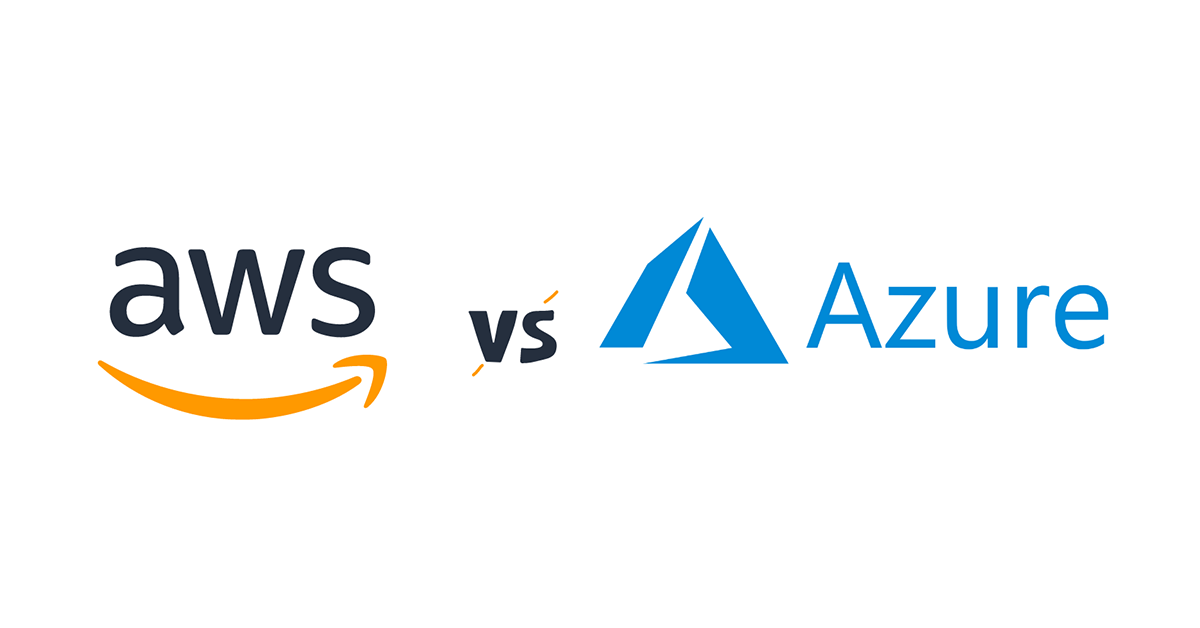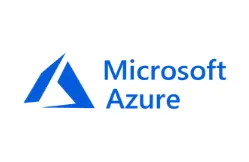AWS Vs Azure: What Are The Key Differences?
AWS is the most widely used cloud services platform by Amazon which offers database storage, content delivery, computing power and other functionalities helping businesses to scale and grow.
Azure is ahybrid cloud service platform by Microsoft which helps companies in the development, service hosting, service management, and data storage. Azure is well known for its flexibility.
Availability
Even though AWS (launch year:2006) was launched much before Azure (launch year:2010), Azure is available in more countries (140 countries) than AWS (61countries). Yet AWS dominates the cloud services market with a40% market share when compared to just 30% of Azure.
Services
AWS provides a greater number of services compared to Azure. Below are the services provided:
| Storage Services | |
|---|---|
| AWS | Azure |
| S3 | Block Storage |
| Buckets | Containers |
| EBS | Azure Drive |
| SDB | Table Storage |
| domains | Tables |
| Easy to use | Storage Stats |
| SQS | |
| CloudFront | |
| AWS Import/Export |
Both AWS and Azure offer long-running and dependable storage services. AWS has offerings like AWS S3, EBS, and Glacier while Azure Storage Services have Blob Storage, Disk Storage, and Standard Archive.
AWS S3 guarantees high availability and automatic replication in all regions. When it comes to brief or temporary storage in AWS, it starts functioning every time the instance starts and stops. On termination, it provides block storage comparable to hard disks and could be attached to an EC2 instance or can be saved separately.
Azure uses temporary storage and page blobs for VM volume. Azure provides Blob Storage services as a counterpart to S3 in AWS
| Database Services | |
|---|---|
| AWS | Azure |
| MySQL | MS SQL |
| Oracle | SQL Sync |
| DynamoDB | |
Both AWS and Azure offervarious database services to handle both structured and unstructured data.
AWS provides Amazon RDS while Azure has Azure SQL Server Database when the priority is durability. Amazon RDS is adaptable to various database engines like MariaDB, Amazon Aurora, MySQL, Microsoft SQL, PostgreSQL, and Oracle.
Even though Azure provides a friendlier and smoother user interface, AWS supports more instances.
| Networking Services | |
|---|---|
| AWS | Azure |
| IP/Elastic IP/ELB | Automatic IP assignment |
| Virtual Private Cloud | Load-balancing |
| Route 53 | Azure Connect |
| ELB | Balancing |
| Firewall heavily configurable | Endpoints defined in csdef/cscfg |
Both Amazon Virtual Private Cloud (VPC) and Microsoft Azure Virtual Network enable users to create subnets, route tables, private IP address ranges, and network gateways by enabling the creation of isolated networks under the Cloud umbrella.
Pricing: Both Azure and AWS provide pay as you use pricing models. While Azure charges at per-minute basis, AWS charges at per hour basis. Azure has a cost advantage when the subscription is for a shorter time, but it would be costlier than AWS when we start scaling up the architecture.
Container and Orchestration Support: AWS offers more options in Big data and Analytics related services. It provides various services that cover domains such as IoT, development of mobile apps and creating a computingenvironment. Azure offers Hadoop support with services such as Azure HD insight.
Support for Hybrid clouds: While Azure excels in the hybrid cloud market by enabling organizations to integrate on-site servers with cloud services, AWS is still an amateur in the hybrid cloud market.
Machine Access:Azure groups machines into cloud service and provides responses to various ports with the same domain name. Whereas, AWS machines can be separately accessed.
Long term data archiving: Azure does not provide any long-term data archiving and retrieval options. Whereas AWS allows its users to do long term data archiving and retrieval.
Security: While AWS provides enhanced security features by defining roles with permission control, azure provides by defining permissions on the whole account.
Advantages of AWS:
- Offers Broad & Deep Services
- Used By High Profile Customers.
- Provides Better Support For DevOps
- AWS Provides Engineers To Choose Operating Systems, Programming Language And, Database Of Their Choice.
- Very Strong Support For Business Intelligence And Analytics
- Easier Ways Of Licensing
- Minimal Information Leakage While Doing Server And Storage Transfer.
Advantages Of Azure:
- Microsoft legacy apps are well supported.
- needs are well supported.
- Supported in mixed Windows/Linux environments.
- Migrations are just a click away.






.webp)
